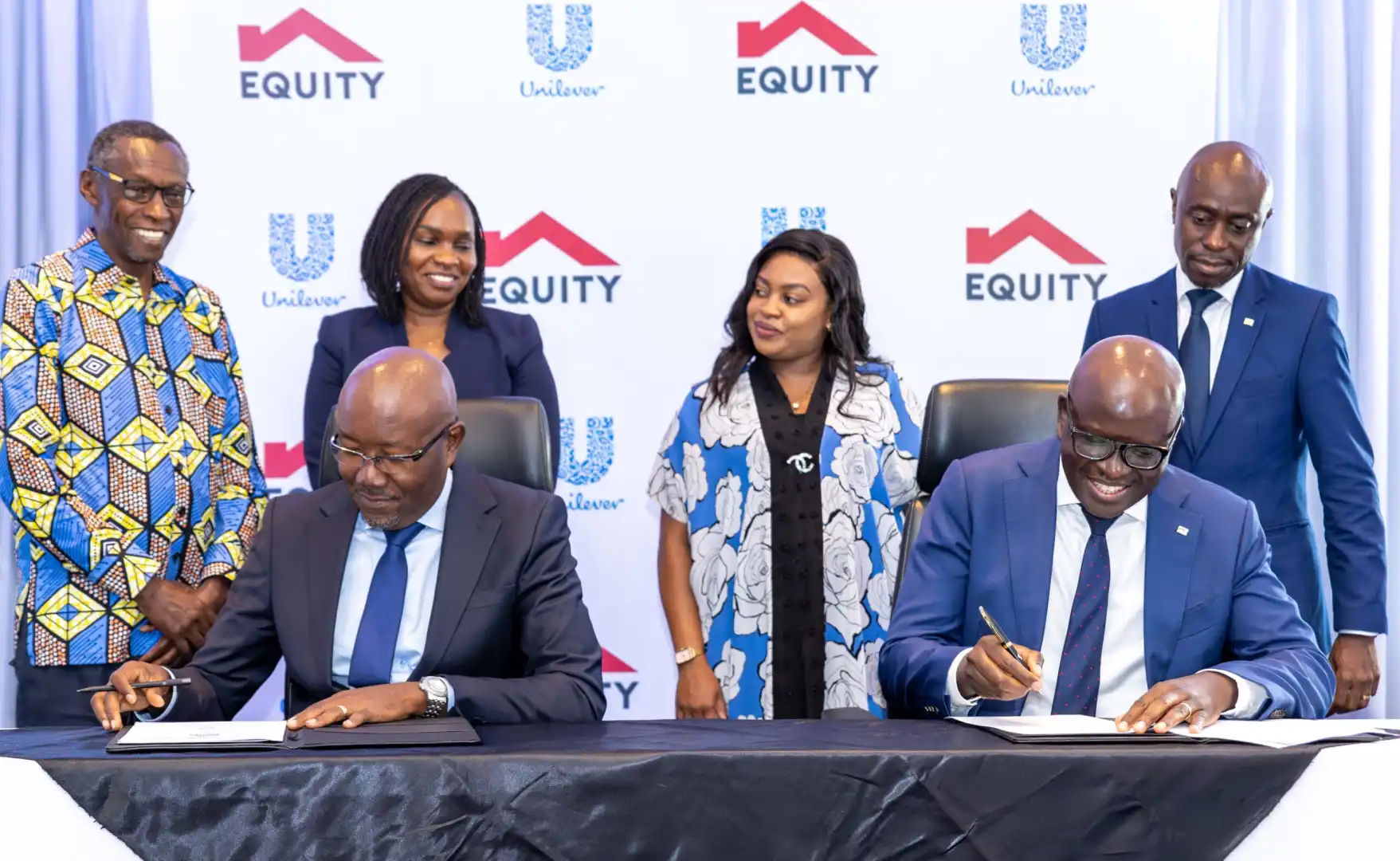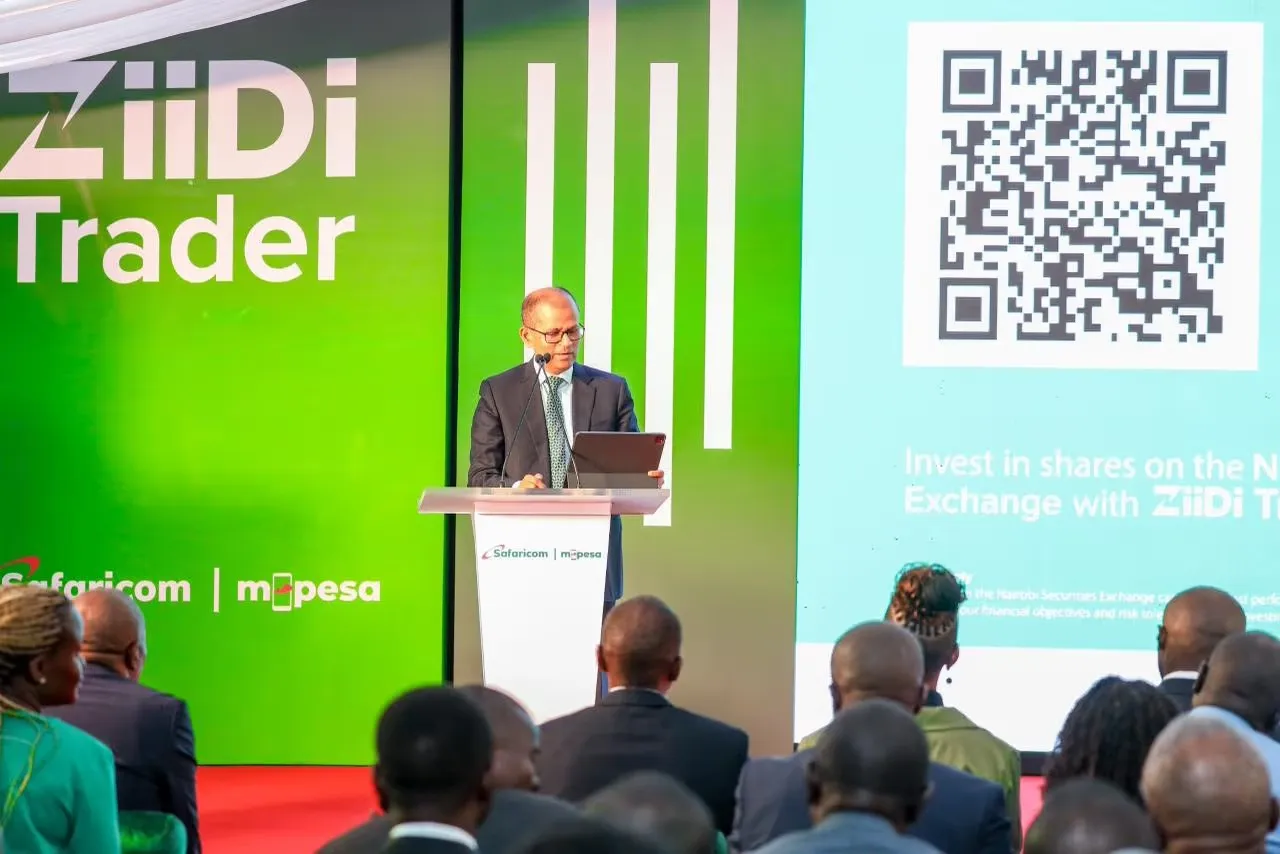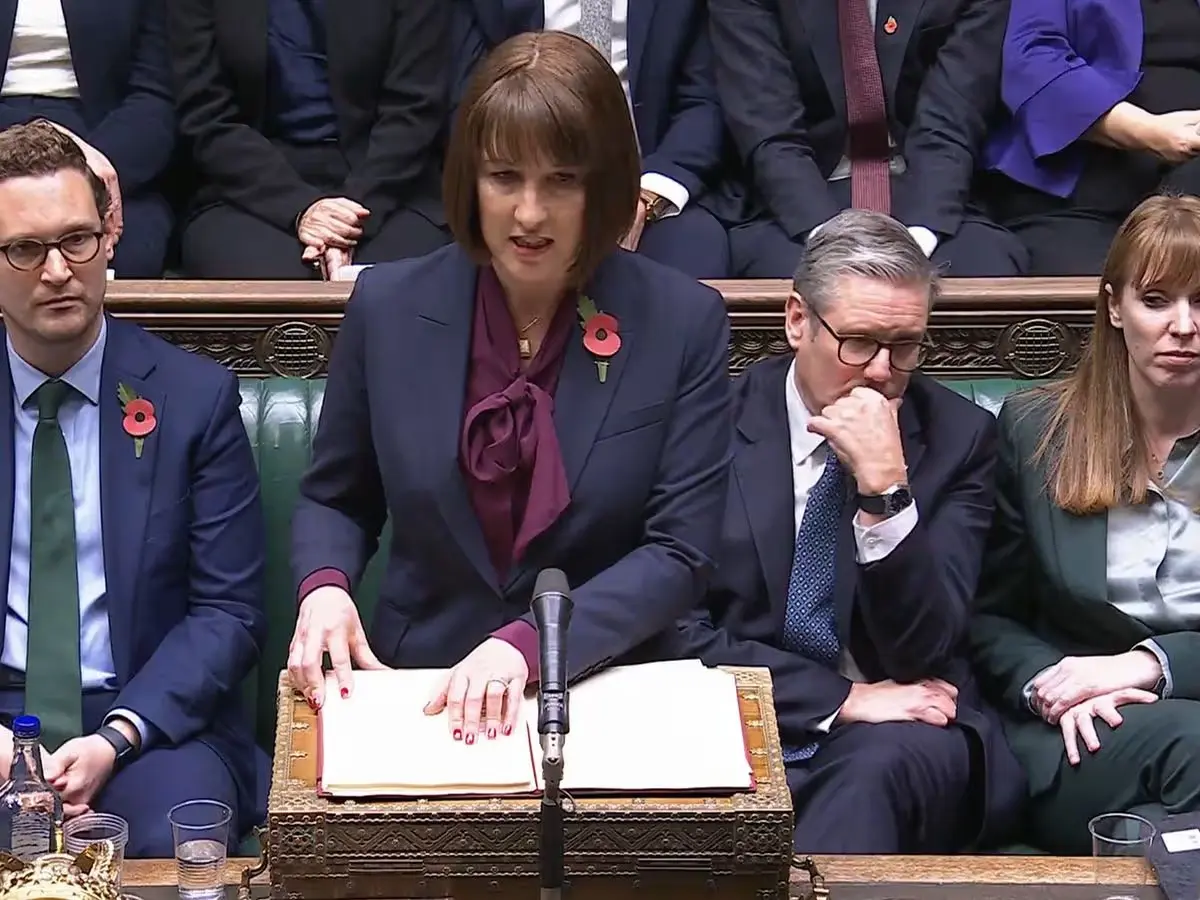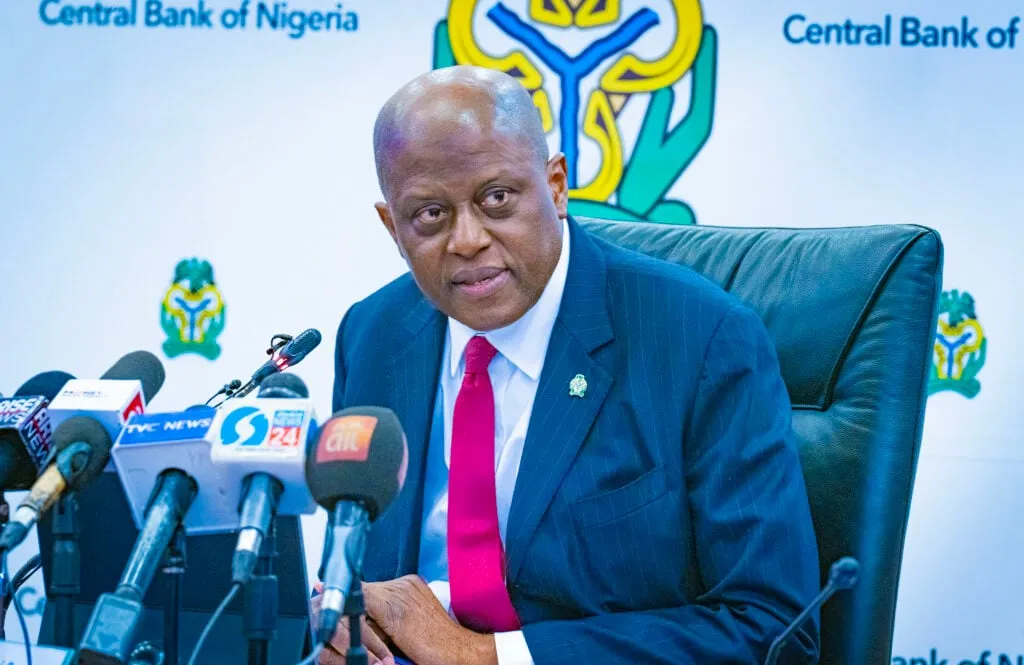Global consumer goods giant Unilever and leading East African financial institution Equity Bank have announced a strategic partnership to roll out a comprehensive Distributor Financing Solution. This groundbreaking initiative, backed by an annual investment of KES 2.4 billion (approximately $18.5 million USD), is meticulously designed to strengthen manufacturing supply chains, dramatically improve product availability, and accelerate the growth of small and medium-sized enterprises (SMEs) across key markets.
This collaboration is a testament to a broader commitment to empowering the vital SME sector, enhancing distribution efficiency, and fueling sustainable economic expansion, particularly within the fast-moving consumer goods (FMCG) manufacturing ecosystem. By addressing critical financial access gaps and optimizing logistics, the partnership aims to create a more robust and inclusive economic landscape for thousands of entrepreneurs who form the backbone of Kenya’s vibrant economy.
The Distributor Financing Solution: Unlocking Growth for SMEs
At the heart of this transformative partnership lies the Distributor Financing Solution. Under this innovative framework, Equity Bank will provide tailored working capital financing to Unilever’s extensive network of distributors. This direct access to credit is designed to empower these distributors, enabling them to overcome common financial hurdles, improve their inventory management, and significantly expand their reach into previously underserved markets.
Key Pillars of the Partnership:
- Accelerated Access to Finance:
Distributors within Unilever’s vast network will now benefit from customized credit solutions specifically designed to support their day-to-day operations. This includes financing for inventory purchases, operational expenses, and expansion initiatives. By providing timely and affordable capital, the solution aims to alleviate cash flow constraints, which are a perennial challenge for many SMEs. This accelerated access to finance will enable distributors to maintain optimal stock levels, seize new market opportunities, and invest in their growth, ultimately unlocking their full potential. - Supply Chain Optimization and Last-Mile Delivery:
The partnership directly addresses one of the most critical and complex aspects of the FMCG sector: last-mile delivery. This solution will support Unilever’s crucial last-mile operations, ensuring that products remain consistently available and accessible to consumers, even in remote or challenging regions. For a global brand like Unilever, efficient last-mile delivery is paramount to market penetration and consumer satisfaction. By empowering distributors with the necessary capital, they can invest in better logistics, warehousing, and transportation, thereby streamlining the final leg of the supply chain. - Financial Inclusion at the Grassroots:
Beyond merely facilitating business transactions, this initiative champions broader financial inclusion. It extends credit facilities to micro, small, and medium enterprises (MSMEs) within Unilever’s vast ecosystem, leveraging Equity Bank’s innovative financial products and extensive reach. This means that even smaller traders and retailers who are part of the distribution chain can gain access to formal financial services, moving them away from informal and often more expensive credit sources. This is a crucial step towards integrating more informal businesses into the formal financial sector, fostering greater economic participation and stability.
The Indispensable Role of SMEs in Kenya’s Economy
Small and Medium-sized Enterprises (SMEs) are the undisputed engine of Kenya’s economic development. They cut across virtually all sectors, making up approximately 90% of private sector enterprises in the country. Their widespread presence makes them crucial enablers of inclusive development, particularly under Kenya’s devolved system of governance.
According to data from the Kenya National Bureau of Statistics (KNBS), SMEs contribute a substantial 33.8% of Kenya’s Gross Domestic Product (GDP) and are responsible for employing more than 14.4 million Kenyans. This highlights their immense potential to transform the economy, drive job creation, and alleviate poverty. While the manufacturing sector specifically contributes 7.8% to the national GDP, as noted by Equity Bank Kenya Managing Director Moses Nyabanda, the broader SME ecosystem’s contribution to employment and overall economic activity is far more expansive.
Challenges Faced by Kenyan SMEs: The Financing Gap
Despite their pivotal role, Kenyan SMEs face myriad challenges that often hinder their growth and sustainability. Among the most prominent of these is inadequate access to finance. Research consistently points to this as a significant barrier.
Key financial constraints include:
- Insufficient Collateral: Many SMEs, particularly those in the informal sector or nascent stages, lack the tangible assets (like land titles or fixed property) that traditional banks often require as collateral for loans. This is a major reason why 71.4% of SMEs in a study cited insufficient collateral as a problem when accessing finance, as per a University of Nairobi Digital Repository report.
- Unacceptable Business Proposals: Some SMEs struggle to articulate their business plans in a way that meets the stringent requirements of financial institutions, leading to rejection of loan applications.
- High Cost of Finance: Even when credit is available, the interest rates can be prohibitively high, making it difficult for SMEs to service their debts and remain profitable. The Kenya Bankers Association has highlighted that the cost of finance is often a more binding constraint than access itself.
- Lack of Credit History: Many informal businesses operate primarily on cash, failing to build a formal credit history that banks can assess.
- Lengthy Loan Processing Times: The time it takes to process and approve loans can be a significant impediment, especially for businesses with urgent working capital needs.
- Inadequate Managerial Training: Beyond finance, many SME owners lack formal training in financial management, business planning, and operational efficiency, which can lead to poor decision-making and business failure, as discussed by the African Association of Entrepreneurs.
The Unilever-Equity Bank partnership directly addresses these financing gaps by offering tailored solutions that move beyond traditional collateral requirements, focusing instead on the established business relationship within Unilever’s supply chain. This approach leverages the trust built within the distribution network, making credit more accessible and affordable.
Government Initiatives to Support SMEs:
The Kenyan government recognizes the critical role of SMEs and has implemented various policies and initiatives to support their growth. These include:
- The Micro and Small Enterprises Act, No. 55 of 2012: This Act provides a legal and institutional framework for the promotion, development, and regulation of MSMEs, including facilitating access to business development services and promoting formalization. The State Department for MSMEs Development provides details on this and other relevant acts.
- Kenya Micro and Small Enterprises Policy (2020): This policy aims to provide an integrated enabling business environment, with objectives including access to diversified and affordable financial products, skills development, and market access.
- Credit Guarantee Scheme (CGS): Rolled out by the National Treasury in December 2020, the CGS aims to enhance MSMEs’ access to quality and affordable credit by having the government guarantee a portion of the outstanding principal amount in case of default. This encourages financial institutions to lend more to SMEs by mitigating their risk.
- Micro and Small Enterprises Authority (MSEA): This government agency is mandated to promote, develop, and regulate the MSME sector. MSEA operates initiatives like the Kariobangi Biashara Centre, a one-stop shop for MSMEs to access various government services.
The Unilever-Equity Bank partnership complements these government efforts by bringing private sector capital and expertise to directly address a critical need within a specific, high-impact sector.
Unilever’s Commitment to Sustainable and Inclusive Growth
For Unilever, a multinational consumer goods company with a vast portfolio of brands ranging from food and beverages to home care and personal care products, this partnership in Kenya is deeply aligned with its global strategy for sustainable and inclusive growth. Unilever has long championed a business model that seeks to deliver growth not at any cost, but in a manner that is consistent, competitive, profitable, and meets major social and environmental needs.
Luck Ochieng, Managing Director, Unilever East Africa, articulated this commitment: “We are delighted to continue empowering our business partners through this transformative partnership with Equity Bank, enabling them to access affordable financing, build capacity, and unlock new commercial opportunities. This initiative is a testament to our unwavering commitment to sustainability and inclusive growth, ensuring that every distributor, regardless of size or location, has the tools to thrive.”
Strengthening the FMCG Supply Chain:
The FMCG sector is characterized by high volumes, rapid turnover, and complex distribution networks. For a company like Unilever, ensuring product availability across diverse markets, from bustling urban centers to remote rural areas, is a logistical challenge of immense proportions. The “last-mile delivery” – the final leg of the supply chain that gets products from a distribution hub to the end consumer – is often the most expensive, inefficient, and challenging part, especially in African markets.
Challenges in last-mile delivery in Africa include:
- Poor Infrastructure: Inadequate road networks, especially in rural areas, lead to longer delivery times, higher transportation costs, and damage to goods and vehicles.
- Limited Access to Technology: Many smaller distributors may lack the technology for route optimization, real-time tracking, or efficient inventory management.
- Security Concerns: Theft and vandalism can be significant issues, impacting product integrity and delivery schedules.
- Lack of a Good National Addressing System: In many parts of Kenya, informal settlements or rural areas lack standardized addresses, making deliveries difficult and inefficient. This was highlighted in a research paper on last-mile delivery in Kenya.
- High Cost of Delivery: Fuel costs, vehicle maintenance, and labor expenses contribute to the high cost of reaching every consumer.
By investing KES 2.4 billion annually into this distributor financing solution, Unilever is not just supporting its partners; it is strategically strengthening its entire supply chain. Empowered distributors can:
- Increase Inventory Holding Capacity: Reduce stock-outs and ensure consistent product availability.
- Improve Logistics: Invest in better vehicles, warehousing, and delivery routes.
- Expand Market Reach: Penetrate new geographical areas and reach more consumers.
- Enhance Efficiency: Streamline operations, leading to faster and more reliable deliveries.
This proactive approach to supply chain resilience is crucial for Unilever, especially given recent global shocks like the COVID-19 pandemic and geopolitical conflicts that exposed vulnerabilities in global supply chains. Unilever Kenya has already demonstrated a strategic shift towards local sourcing of raw materials, aiming to source 70% of its raw material needs from the domestic market by 2025. This further enhances supply chain resilience and contributes to local economic development.
Alignment with ESG Goals:
Unilever’s commitment to “sustainability and inclusive growth” is a core tenet of its global business strategy. The Unilever Sustainable Living Plan (USLP), though evolving, has historically set ambitious targets related to improving health and well-being, reducing environmental impact, and enhancing livelihoods. This partnership with Equity Bank directly contributes to the “enhancing livelihoods” pillar by:
- Creating Meaningful Employment: A thriving distributor network supports numerous jobs, from sales and logistics to administrative roles.
- Promoting Economic Development: By channeling capital to entrepreneurs, the initiative stimulates local economies and fosters a more equitable distribution of wealth.
- Building Capacity: Providing access to finance also enables distributors to invest in training, technology, and infrastructure, building their long-term business capabilities.
This initiative exemplifies how large corporations can integrate social impact directly into their core business operations, moving beyond traditional corporate social responsibility (CSR) to create shared value for both the company and the communities it serves.
Equity Bank: A Catalyst for Financial Inclusion
Equity Bank’s participation in this partnership is equally strategic, aligning perfectly with its long-standing mission to empower consumers, businesses, and communities across East Africa. As one of Kenya’s largest and most innovative financial institutions, Equity Bank boasts an extensive network and a deep understanding of the local economic landscape.
Moses Nyabanda, Equity Bank Kenya Managing Director, emphasized this alignment: “Our mission is to empower consumers, businesses, and communities. This collaboration with Unilever allows us to extend affordable, accessible credit to traders who are key drivers of Kenya’s economy, and with Equity’s reach across all 47 counties, we’re positioned to scale this quickly.”
Innovative Financial Products and Extensive Reach:
Equity Bank has been a pioneer in financial inclusion in Kenya, leveraging technology and an expansive agency banking network to reach underserved populations. Their innovative financial products often cater to segments traditionally excluded by conventional banking models. This partnership specifically mentions extending credit facilities to MSMEs within Unilever’s ecosystem through these innovative products.
Equity Bank’s approach to financial inclusion includes:
- Agency Banking: A vast network of agents (small businesses, shops) that provide basic banking services, extending reach beyond traditional branches, particularly in rural and peri-urban areas.
- Mobile Banking: Leveraging mobile money platforms and digital channels to offer convenient and accessible financial services.
- Unsecured Micro-lending: As seen in their partnership with the International Finance Corporation (IFC) for refugees and host communities, Equity Bank focuses on character and capacity to pay rather than solely on collateral, a crucial factor for many SMEs. This risk-sharing facility, the first globally dedicated to financial inclusion for refugees, underscores their commitment to vulnerable populations.
- Financial Literacy Training: Through the Equity Group Foundation (EGF), Equity provides non-financial services like financial literacy training, equipping entrepreneurs with the knowledge and skills to manage their finances effectively, become more “bankable,” and make informed financial choices. EGF’s work also extends to supporting farmers, youth, and vulnerable households through various programs.
Equity Bank’s presence across all 47 counties in Kenya is a significant competitive advantage. This widespread reach enables the rapid scaling of the Distributor Financing Solution, ensuring that its benefits can extend to a broad base of distributors and MSMEs across the entire country, not just in major urban centers. This aligns with the government’s Bottom-Up Economic Transformation Agenda (BETA), which emphasizes channeling capital to grassroots entrepreneurs.
Broader Impact and Future Outlook
The Unilever-Equity Bank partnership is more than just a commercial agreement; it is a powerful demonstration of how private sector collaboration can drive inclusive economic growth and address systemic challenges in developing markets.
Fueling Inclusive Economic Growth and Employment:
The KES 2.4 billion annual investment is a substantial injection of capital into Kenya’s economy. By empowering distributors, it directly fuels economic activity at the grassroots level. A stronger distribution network means more products reach consumers, stimulating demand and creating a ripple effect throughout the economy. This investment will translate into:
- Job Creation: Within the distribution network itself (drivers, sales agents, warehouse staff), and indirectly in related sectors.
- Increased Trade Volumes: More efficient supply chains lead to higher sales volumes for Unilever and increased turnover for distributors and retailers.
- Enhanced Entrepreneurship: By providing accessible finance, the partnership nurtures a new generation of entrepreneurs and helps existing ones expand.
- Poverty Alleviation: Improved livelihoods for distributors and their employees contribute to poverty reduction.
Enhancing Supply Chain Resilience and Market Access:
The partnership significantly enhances the resilience of Unilever’s supply chain in Kenya. By strengthening local distribution capabilities, it reduces dependence on centralized logistics, making the supply chain more agile and less susceptible to disruptions. This also ensures that Unilever’s products remain available and affordable in diverse markets, including those that are typically harder to reach. This is particularly important for FMCG products, where consistent availability is key to maintaining market share and consumer loyalty.
A Model for Cross-Sector Collaboration:
This collaboration between a global FMCG giant and a leading regional bank serves as a compelling model for other corporations and financial institutions operating in Africa. It demonstrates the immense potential of cross-sector partnerships to address complex development challenges, such as financial exclusion and supply chain inefficiencies, by leveraging complementary strengths. Such partnerships can unlock significant private capital for development, complementing government efforts and donor funding.
Long-Term Sustainability and Scalability:
The long-term success of this initiative will depend on its ability to evolve and adapt. The initial KES 2.4 billion annual investment is a strong start, but the partnership’s true impact will be realized through its sustained commitment and potential for scalability. As distributors grow, their financial needs may change, requiring flexible and evolving credit solutions. The continuous feedback loop between Unilever, its distributors, and Equity Bank will be crucial for refining the program and ensuring its continued relevance.
The emphasis on building capacity and financial literacy among MSMEs also points to a sustainable model where beneficiaries are not just given a handout but are equipped with the tools and knowledge to manage their businesses effectively and achieve self-reliance. This approach fosters a virtuous cycle of growth, where empowered SMEs contribute to a stronger economy, which in turn creates more opportunities.
Conclusion: A Catalyst for Shared Prosperity
The strategic partnership between Unilever and Equity Bank to launch the KES 2.4 billion Distributor Financing Solution is a landmark development for Kenya’s economic landscape. It represents a powerful confluence of corporate strategy, financial innovation, and a deep commitment to inclusive growth. By directly addressing the critical challenge of access to finance for SMEs within the vital FMCG supply chain, this initiative promises to:
- Revolutionize Product Availability: Ensuring that essential consumer goods reach every corner of Kenya.
- Empower Entrepreneurs: Providing the financial lifeline and support needed for SMEs to thrive, create jobs, and expand their businesses.
- Strengthen Economic Foundations: Contributing significantly to Kenya’s GDP and fostering a more resilient and equitable economy.
As Moses Nyabanda aptly put it, this initiative “not only empowers SMEs but also fosters inclusive economic growth by channeling capital to where it’s needed most: into the hands of entrepreneurs who drive the supply chain from end to end.” This partnership is a shining example of how strategic collaborations can unlock shared prosperity, building stronger businesses, more vibrant communities, and a more inclusive future for Kenya and potentially, for the wider African continent.
Ready to take your career to the next level? Join our dynamic courses: ACCA, HESI A2, ATI TEAS 7 , HESI EXIT , NCLEX – RN and NCLEX – PN, Financial Literacy!🌟 Dive into a world of opportunities and empower yourself for success. Explore more at Serrari Ed and start your exciting journey today! ✨
photo source: Google
By: Montel Kamau
Serrari Financial Analyst
10th July, 2025
Article, Financial and News Disclaimer
The Value of a Financial Advisor
While this article offers valuable insights, it is essential to recognize that personal finance can be highly complex and unique to each individual. A financial advisor provides professional expertise and personalized guidance to help you make well-informed decisions tailored to your specific circumstances and goals.
Beyond offering knowledge, a financial advisor serves as a trusted partner to help you stay disciplined, avoid common pitfalls, and remain focused on your long-term objectives. Their perspective and experience can complement your own efforts, enhancing your financial well-being and ensuring a more confident approach to managing your finances.
Disclaimer: This article is for informational purposes only and does not constitute financial advice. Readers are encouraged to consult a licensed financial advisor to obtain guidance specific to their financial situation.
Article and News Disclaimer
The information provided on www.serrarigroup.com is for general informational purposes only. While we strive to keep the information up to date and accurate, we make no representations or warranties of any kind, express or implied, about the completeness, accuracy, reliability, suitability, or availability with respect to the website or the information, products, services, or related graphics contained on the website for any purpose. Any reliance you place on such information is therefore strictly at your own risk.
www.serrarigroup.com is not responsible for any errors or omissions, or for the results obtained from the use of this information. All information on the website is provided on an as-is basis, with no guarantee of completeness, accuracy, timeliness, or of the results obtained from the use of this information, and without warranty of any kind, express or implied, including but not limited to warranties of performance, merchantability, and fitness for a particular purpose.
In no event will www.serrarigroup.com be liable to you or anyone else for any decision made or action taken in reliance on the information provided on the website or for any consequential, special, or similar damages, even if advised of the possibility of such damages.
The articles, news, and information presented on www.serrarigroup.com reflect the opinions of the respective authors and contributors and do not necessarily represent the views of the website or its management. Any views or opinions expressed are solely those of the individual authors and do not represent the website's views or opinions as a whole.
The content on www.serrarigroup.com may include links to external websites, which are provided for convenience and informational purposes only. We have no control over the nature, content, and availability of those sites. The inclusion of any links does not necessarily imply a recommendation or endorsement of the views expressed within them.
Every effort is made to keep the website up and running smoothly. However, www.serrarigroup.com takes no responsibility for, and will not be liable for, the website being temporarily unavailable due to technical issues beyond our control.
Please note that laws, regulations, and information can change rapidly, and we advise you to conduct further research and seek professional advice when necessary.
By using www.serrarigroup.com, you agree to this disclaimer and its terms. If you do not agree with this disclaimer, please do not use the website.
www.serrarigroup.com, reserves the right to update, modify, or remove any part of this disclaimer without prior notice. It is your responsibility to review this disclaimer periodically for changes.
Serrari Group 2025
















